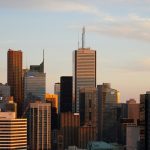As UK expatriates, returning home can be both an exciting and overwhelming time. After years abroad, you may be considering buying a property in your home country. However, there are several important financial steps you must consider before making your investment.
This article will serve as your complete guide, highlighting key aspects such as property tax, income planning, capital gains, mortgage advice, and insurance considerations that British expats must take into account. Let’s dive into the specifics to help you navigate this process smoothly and efficiently.
En parallèle : How can UK first-time homebuyers benefit from the recent changes in stamp duty for properties under £300,000?
Understanding Property Taxes in the UK
Returning to the UK after a stint abroad means reacquainting yourself with the concept of property tax. In the UK, you’ll primarily deal with council tax, which is based on the estimated value of your property and the number of people living in it.
When planning your budget, ensure you’ve accounted for this ongoing cost. You need to understand the rates applicable to the area you’re considering for your property purchase. The rates can range from Band A (the lowest) to Band H (the highest).
Avez-vous vu cela : Boosting Energy Efficiency: A Unique Guide for UK Property Owners to Comply with New Government Standards
Additionally, as a property owner, you may face capital gains tax if you later decide to sell your property. The rate of capital gains tax varies depending on your total taxable income.
Financial Planning: Income and Investments
Financial planning is crucial for any major investment, including property purchases. As a returning expat, it’s essential to have a comprehensive understanding of your total income, factoring in any earnings or pensions from abroad, and how the UK taxes this income.
A critical aspect of this is understanding the double taxation agreement (DTA) between the UK and the country you were residing in as an expat. DTAs ensure that you don’t pay tax on the same income in both countries.
When planning your income, consider any investments you’ve made while abroad. You may need to adjust these investments or consider how they will be taxed when you return to the UK.
Mortgage Advice for Returning Expats
Navigating the mortgage landscape in the UK can be tricky for returning expats, especially if you’ve been away for a long time. The lending criteria for mortgages may have changed, and you might find some lenders wary if you’ve been out of the UK credit system for a while.
To get the best mortgage deal, you should seek advice from a mortgage broker who’s experienced in dealing with expats. They will help you understand the current mortgage rates, lending criteria, and help you find a lender who’s comfortable lending to returning expats.
You should also make sure your credit report is up to date. If you’ve kept UK credit cards active while you were abroad and managed them responsibly, this could work in your favour.
Capital Gains Considerations
Capital gains tax is another financial aspect to consider when buying property in the UK. If you sell your property later and make a profit, you may have to pay capital gains tax.
The amount of tax you pay depends on the profit you make and your total taxable income for the year. If you’re a higher or additional-rate taxpayer, you’ll pay a higher amount of capital gains tax.
It’s worth noting that you may be able to reduce the amount of capital gains tax you pay if you qualify for Private Residence Relief. This relief applies if the property was your main home.
Insurance Considerations for Property Owners
Insurance is an essential aspect to consider when investing in property. It’s crucial to protect your investment with the right type and level of insurance.
Buildings insurance is a must-have for homeowners, as it covers the cost of repairing or rebuilding your property if it’s damaged or destroyed. Contents insurance, on the other hand, covers the cost of replacing your belongings in your home if they’re damaged, destroyed, or stolen.
If you’re renting out your property, you might also consider landlord insurance. This covers you for property damage, loss of rent due to property damage, and legal expenses.
Remember, buying a property is a significant financial decision. As a returning expat, it’s essential to understand the potential tax implications, income considerations, mortgage options, capital gains considerations, and insurance needs. This understanding will ensure that you can make an informed decision and manage your investment effectively.
Addressing Stamp Duty and Inheritance Tax
Stamp duty is a tax that you have to pay when buying a property in the UK. The amount of stamp duty you pay depends on the price of the property you’re buying. You should factor this into your financial planning when you’re considering buying a house.
For returning British expats, there may also be an additional 3% stamp duty surcharge if you already own a property abroad. Stamp duty rates and exemptions can change, so it’s crucial to stay updated or seek financial advice to ensure you’re aware of your obligations.
Inheritance tax is another consideration for property owners. If you pass away, the value of your estate, including any property, is subject to inheritance tax if it exceeds the £325,000 threshold. However, the rate of inheritance tax you pay can be reduced if you leave your estate to your spouse, civil partner or charity.
Navigating the UK Property Market
The UK property market can be volatile, with prices fluctuating based on a range of factors, including the economy, interest rates, and political events. Therefore, keeping a close eye on the property market is crucial before making a decision to buy property.
As a returning expat, you may be detached from the pulse of the UK property market. To get a grip on the state of the market, you can review property price trends, consult with real estate agents, read property market reports, and conduct thorough research on the area you’re planning to buy in.
Remember that buying a house is not just about cost but also about location. Consider factors such as connectivity, proximity to amenities, and future growth potential to make an informed decision.
Conclusion: The Importance of Comprehensive Financial Planning
Returning to the UK after living abroad and attempting to buy property can feel like a daunting task. From understanding property taxes, stamp duty, and inheritance tax to navigating the property market and securing a mortgage, there’s a lot to consider.
However, with comprehensive financial planning, these obstacles can be navigated successfully. Capital gains, income tax considerations, and ensuring you’re adequately insured are all vital parts of this process.
Securing a bridging loan can also be a valuable tool for those looking to buy a house quickly. This is a short-term loan that can be used to ‘bridge’ the gap between the sale of your old property and the purchase of a new one.
In conclusion, as a returning British expat, before you dive into the property market, it’s crucial to conduct thorough research, keep abreast of the market trends, and seek financial advice where necessary. Remember, your investment in the residential property is a significant financial decision, and all steps towards it should be taken with thorough understanding and careful planning.






